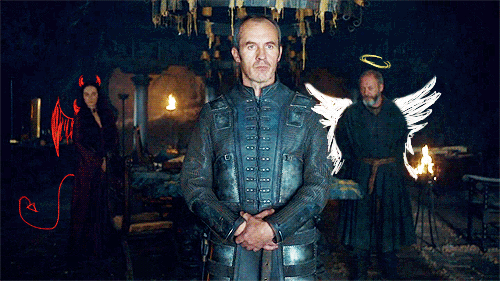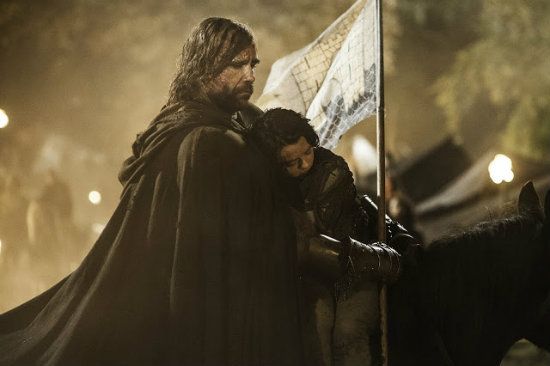What interests me about the book character is the uncertain extent to which his rhetoric about honor and justice conceals a sulky bitterness about not being more popular and admired-- "I always do the right thing, and no one appreciates it"-- that has the potential to turn dangerously sour. In the books, for example, his debate over sacrificing the equivalent of Gendry is colored by the fact that that character is Robert's bastard by Stannis' wife's cousin, conceived in Stannis' own bed, on Stannis' own wedding night. So the boy is a reminder of Robert's self-indulgence (counter to Stannis' own anhedonic puritanism) and the insult to Stannis' honor, and it's an open question whether that, as much as the issue of the greater good, is in Stannis' thoughts as he contemplates the sacrifice. I find that genuine ambiguity a lot more interesting than making him another ruthless schemer in a show that isn't short of them.





